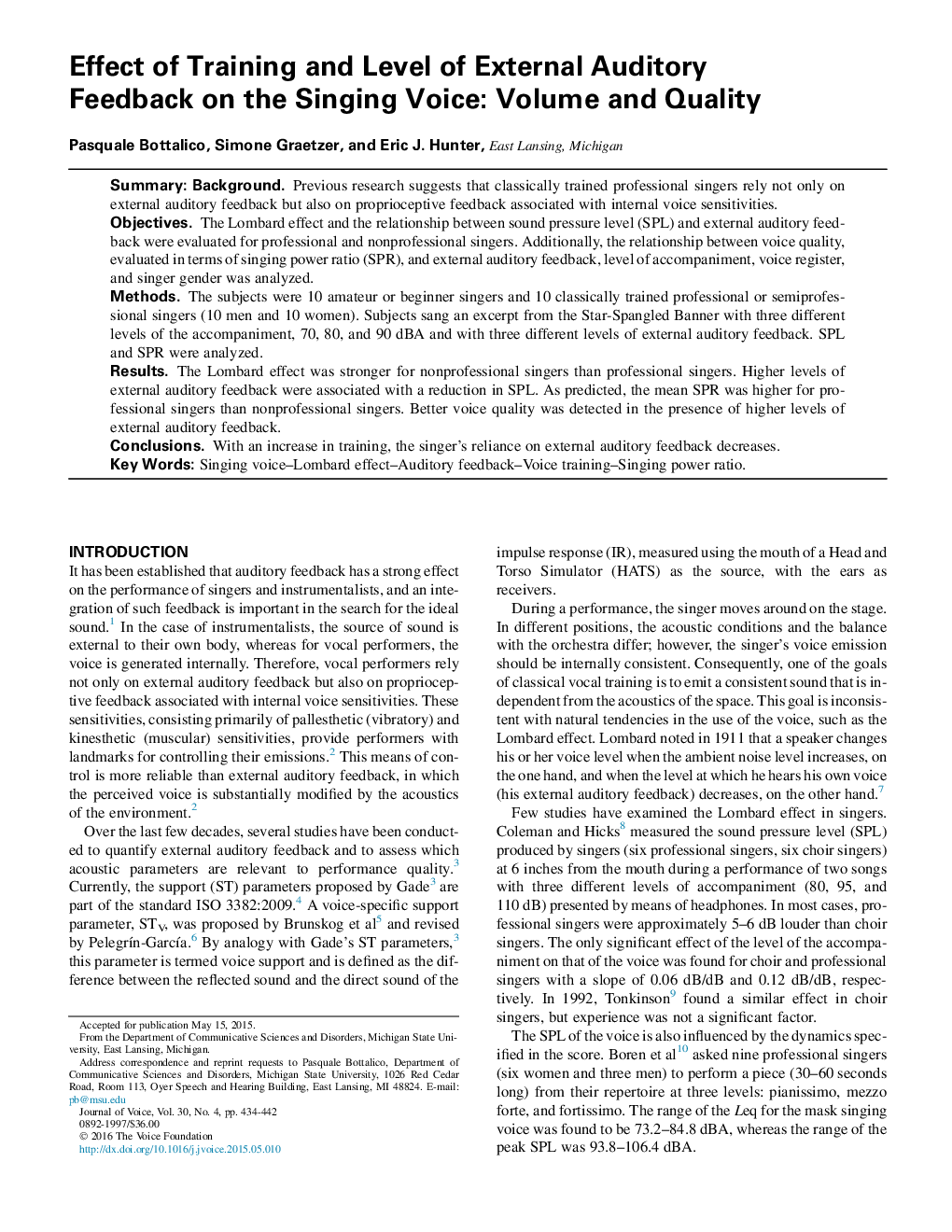| Article ID | Journal | Published Year | Pages | File Type |
|---|---|---|---|---|
| 1101216 | Journal of Voice | 2016 | 9 Pages |
SummaryBackgroundPrevious research suggests that classically trained professional singers rely not only on external auditory feedback but also on proprioceptive feedback associated with internal voice sensitivities.ObjectivesThe Lombard effect and the relationship between sound pressure level (SPL) and external auditory feedback were evaluated for professional and nonprofessional singers. Additionally, the relationship between voice quality, evaluated in terms of singing power ratio (SPR), and external auditory feedback, level of accompaniment, voice register, and singer gender was analyzed.MethodsThe subjects were 10 amateur or beginner singers and 10 classically trained professional or semiprofessional singers (10 men and 10 women). Subjects sang an excerpt from the Star-Spangled Banner with three different levels of the accompaniment, 70, 80, and 90 dBA and with three different levels of external auditory feedback. SPL and SPR were analyzed.ResultsThe Lombard effect was stronger for nonprofessional singers than professional singers. Higher levels of external auditory feedback were associated with a reduction in SPL. As predicted, the mean SPR was higher for professional singers than nonprofessional singers. Better voice quality was detected in the presence of higher levels of external auditory feedback.ConclusionsWith an increase in training, the singer's reliance on external auditory feedback decreases.
